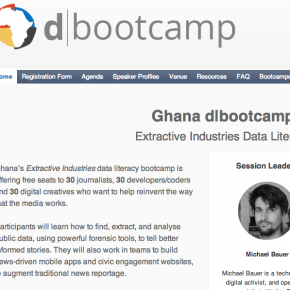Tomorrow I start my one-week summer internship with Ghanaian radio station Citi FM. Now you ask yourself: Why would a grown woman with a full-time job do an internship? Just give me a minute and I will tell you!
Back in May when classes were drawing to a close at Ashesi University College where I teach, I thought of what I wanted to do with my summer. As a lecturer who teaches others all year around, I felt inclined to myself learn something new.I do believe in lifelong learning , after all! But what? It was on my mind for a while. I decided it should ideally be something that enhanced my skills in teaching communication, leadership and political science.
Every morning when I drive to work, I tune in to Citi FM and listen to their social commentary morning program Citi Breakfast Show on issues important to Ghanaians such as water, electricity, growing your business and who should be a politician – stuff like that. Every day a new topic, every day a great show. Problem descriptions that showed dedication to journalism, guests with insights, but that were also questioned thoroughly – and this is not common in an economy where most businesses run on a shoestring (and a generator!) and all of the above takes preparation, skill and time.
I grew curious how they work behind the scenes – how do they prepare? How much time goes into each show? What best practises do they have to share as a successful team? How do they keep their enthusiasm when uncovering so much hardship?
…and now I am to find out! That is if I wake up on time to be there, bright and early at 6 AM.
Stay tuned for my internship report at the end of the week!

 This weekend is Memorial Day (US), Mother’s Day (Sweden, Hurray for mom!) and African Union weekend (Africa). But how does one celebrate the African Union? I am not sure, but will spend the delayed holiday (in Ghana holidays that fall on weekends get “compensated” at the first possible weekday, in this case AU Day fell on Saturday 25 May, hence tomorrow, Monday 27th is the day off!) and two more days at a
This weekend is Memorial Day (US), Mother’s Day (Sweden, Hurray for mom!) and African Union weekend (Africa). But how does one celebrate the African Union? I am not sure, but will spend the delayed holiday (in Ghana holidays that fall on weekends get “compensated” at the first possible weekday, in this case AU Day fell on Saturday 25 May, hence tomorrow, Monday 27th is the day off!) and two more days at a 